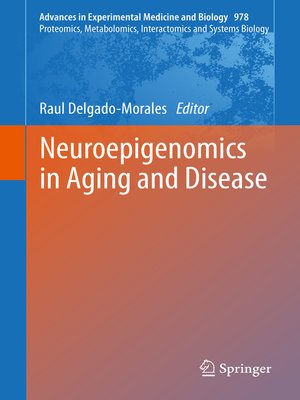Neuroepigenomics in Aging and Disease
ebook ∣ Advances in Experimental Medicine and Biology
By Raul Delgado-Morales

Sign up to save your library
With an OverDrive account, you can save your favorite libraries for at-a-glance information about availability. Find out more about OverDrive accounts.
Find this title in Libby, the library reading app by OverDrive.



Search for a digital library with this title
Title found at these libraries:
| Library Name | Distance |
|---|---|
| Loading... |
The book also covers the three major players on neuroepigenomic mechanisms: histones alterations, DNA modifications and non-coding RNAs, their roles at the molecular and cellular level and the impact of their alterations on neuronal function and behavior. Finally, a special chapter on state-of-the-art technologies helps the reader not only to understand epigenetic driven changes in human cognition and diseases but also the methodology that will help to generate paradigm shifts on our understanding of brain function and the role of the neuroepigenome in human diseases.







